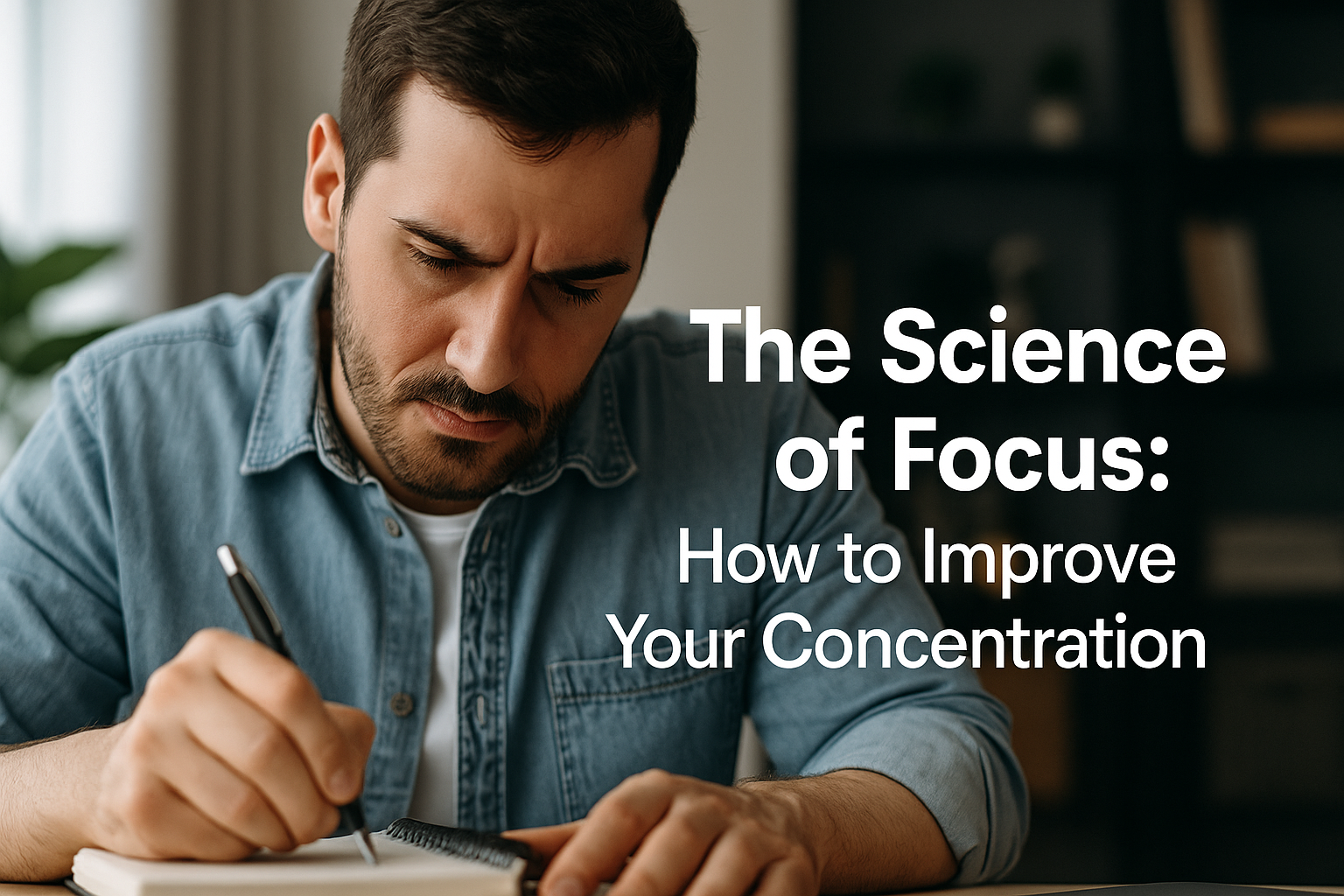Staying focused in a world full of distractions is becoming increasingly difficult. Between notifications, multitasking, and constant interruptions, our ability to concentrate has never been more challenged. But the good news is: focus is a skill—and it can be trained.
In this article, we’ll explore the science behind attention and give you practical tools to improve your concentration and get more done.
What Is Focus and Why Does It Matter?
Focus is your brain’s ability to direct attention toward a task and maintain it over time. It’s essential for:
- Deep thinking and problem-solving
- Completing complex tasks
- Learning new skills
- Avoiding procrastination
- Feeling productive and in control
Without focus, even the best time-management system falls apart.
What Disrupts Your Focus?
Modern life offers countless distractions. Common focus killers include:
- Digital interruptions (notifications, social media)
- Multitasking
- Mental fatigue and poor sleep
- Anxiety or stress
- Cluttered or noisy environments
- Lack of clarity or motivation
Before improving focus, you need to identify what’s sabotaging it.
1. Reduce Digital Distractions
Your devices are powerful tools—but they also fragment your attention.
Tips to stay in control:
- Silence non-essential notifications
- Use apps like Focus Mode, Freedom, or Cold Turkey
- Keep your phone out of reach during deep work sessions
- Work offline when possible
- Check email at set intervals—not constantly
Design your digital space to protect your attention.
2. Use the “Focus Sprint” Method
Long stretches of concentration are difficult—especially at first. Instead, work in focused sprints:
- Choose one task
- Set a timer for 25–45 minutes
- Work with total focus (no multitasking)
- Take a short 5-minute break
- Repeat for 3–4 cycles, then take a longer break
This technique strengthens your attention span over time.
3. Create a Distraction-Free Workspace
Your environment affects your ability to focus more than you might think.
Optimize your workspace by:
- Decluttering your desk
- Wearing noise-canceling headphones or playing white noise
- Facing away from distractions (e.g., windows or doorways)
- Keeping only what you need in view
- Using physical reminders like a “do not disturb” sign
An organized space supports an organized mind.
4. Train Your Mind With Mindfulness
Mindfulness meditation has been shown to improve attention and reduce impulsivity.
How to start:
- Set a timer for 5–10 minutes
- Sit comfortably and close your eyes
- Focus on your breath
- When your mind wanders (and it will), gently return to your breath
Even a few minutes a day strengthens your mental focus.
5. Fuel Your Brain With Rest and Nutrition
Focus isn’t just mental—it’s physical too.
Support your brain by:
- Getting 7–9 hours of sleep per night
- Staying hydrated throughout the day
- Eating focus-friendly foods (omega-3s, leafy greens, nuts, berries)
- Taking short walks or doing light exercise to reset your brain
A tired or undernourished brain won’t focus—no matter how motivated you are.
6. Set Clear, Specific Goals
Ambiguity leads to distraction. The clearer your task, the easier it is to focus on it.
Replace vague goals like “work on project” with:
- “Outline 3 sections of the presentation”
- “Write the first 500 words of the article”
- “Complete data entry for 10 clients”
Specificity gives your brain a clear destination.
Final Thought: Focus Is a Skill—Not a Trait
You’re not “bad at focusing”—you’re just untrained. Like a muscle, your attention strengthens with practice, patience, and the right environment.
Start by making small changes: one fewer tab, one focused sprint, one deep breath before you begin. These choices add up—and your focus will grow.
In a noisy world, your attention is your most valuable resource. Protect it, train it, and use it with purpose.

